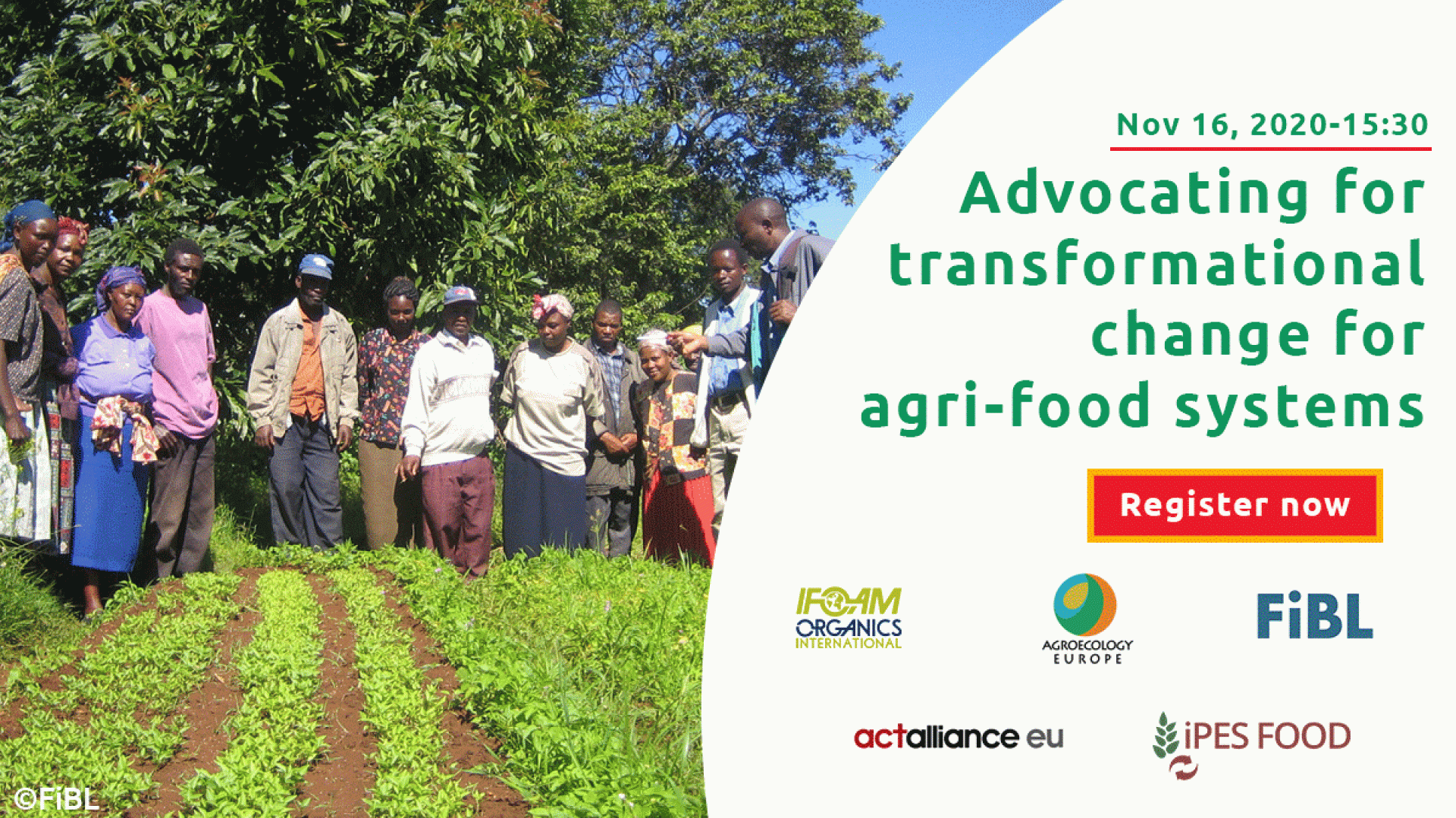Link to the audio recording
- Moderator: Emile Frison (IPES-FOOD)
- Karin Ulmer (ACT-Alliance EU)
- Paola Migliorini (Agroecology Europe)
- Vijay Kumar (ZBNF)
- Antonio Roman-Alcala (Agroecological Research Action Collective)
- Louise Luttikholt (IFOAM - Organics International)
- Yanna Muriel (INOFO)
- Adrian Müller (FiBL)
- Million Belay (AFSA)
Related:
13 AGROECOLOGICAL PRINCIPLES (HLPE 2019)
- Recycling. Preferentially use local renewable resources and close as far as possible resource cycles of nutrients and biomass.
- Input reduction. Reduce or eliminate dependency on purchased inputs.
- Soil heath. Secure and enhance soil health and functioning for improved plant growth, particularly by managing organic matter and by enhancing soil biological activity.
- Animal health. Ensure animal health and welfare.
- Biodiversity. Maintain and enhance diversity of species, functional diversity and genetic resources and maintain biodiversity in the agroecosystem over time and space at field, farm and landscape scales.
- Synergy. Enhance positive ecological interaction, synergy, integration, and complementarity amongst the elements of agroecosystems (plants, animals, trees, soil, water).
- Economic diversification. Diversify on-farm incomes by ensuring small-scale farmers have greater financial independence and value addition opportunities while enabling them to respond to demand from consumers.
- Co-creation of knowledge. Enhance co-creation and horizontal sharing of knowledge including local and scientific innovation, especially through farmer-to-farmer exchange. Co-creation of knowledge. Enhance co-creation and horizontal sharing of knowledge including local and scientific innovation, especially through farmer-to-farmer exchange.
- Social values and diets. Build food systems based on the culture, identity, tradition, social and gender equity of local communities that provide healthy, diversified, seasonally and culturally appropriate diets.
- Fairness. Support dignified and robust livelihoods for all actors engaged in food systems, especially small-scale food producers, based on fair trade, fair employment and fair treatment of intellectual property rights.
- Connectivity. Ensure proximity and confidence between producers and consumers through promotion of fair and short distribution networks and by re-embedding food systems into local economies.
- Land and natural resource governance. Recognize and support the needs and interests of family farmers, smallholders and peasant food producers as sustainable managers and guardians of natural and genetic resources.
- Participation. Encourage social organization and greater participation in decision-making by food producers and consumers to support decentralized governance and local adaptive management of agricultural and food systems.
The 10 Elements of Agroecology are interlinked and interdependent.
As an analytical tool, the 10 Elements can help countries to operationalise agroecology. By identifying important properties of agroecological systems and approaches, as well as key considerations in developing an enabling environment for agroecology, the 10 Elements are a guide for policymakers, practitioners and stakeholders in planning, managing and evaluating agroecological transitions.
As an analytical tool, the 10 Elements can help countries to operationalise agroecology. By identifying important properties of agroecological systems and approaches, as well as key considerations in developing an enabling environment for agroecology, the 10 Elements are a guide for policymakers, practitioners and stakeholders in planning, managing and evaluating agroecological transitions.



No comments:
Post a Comment